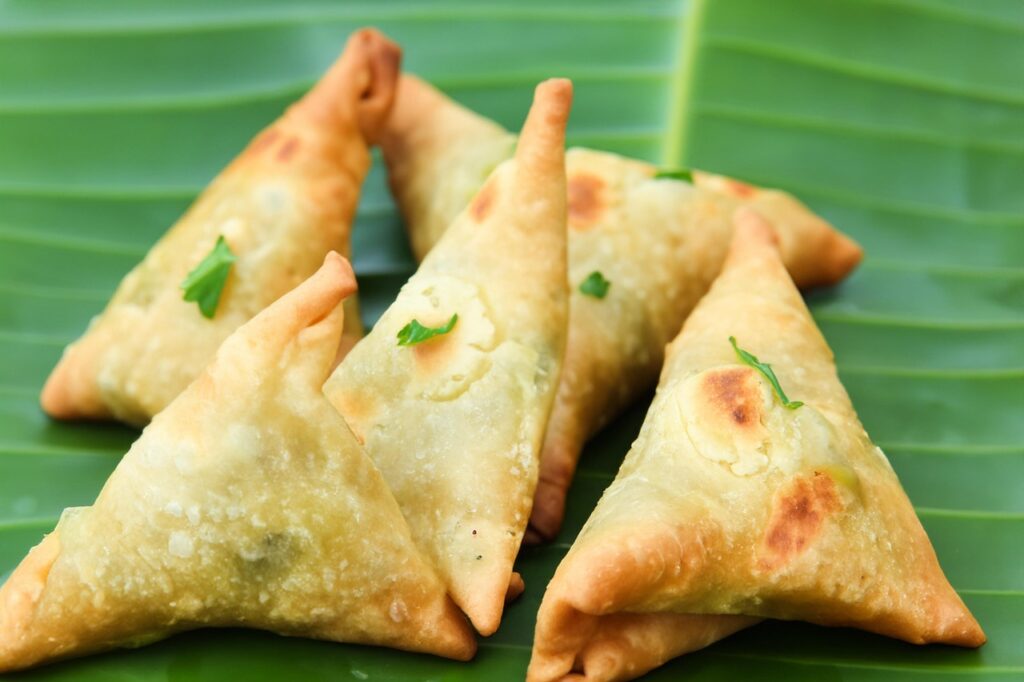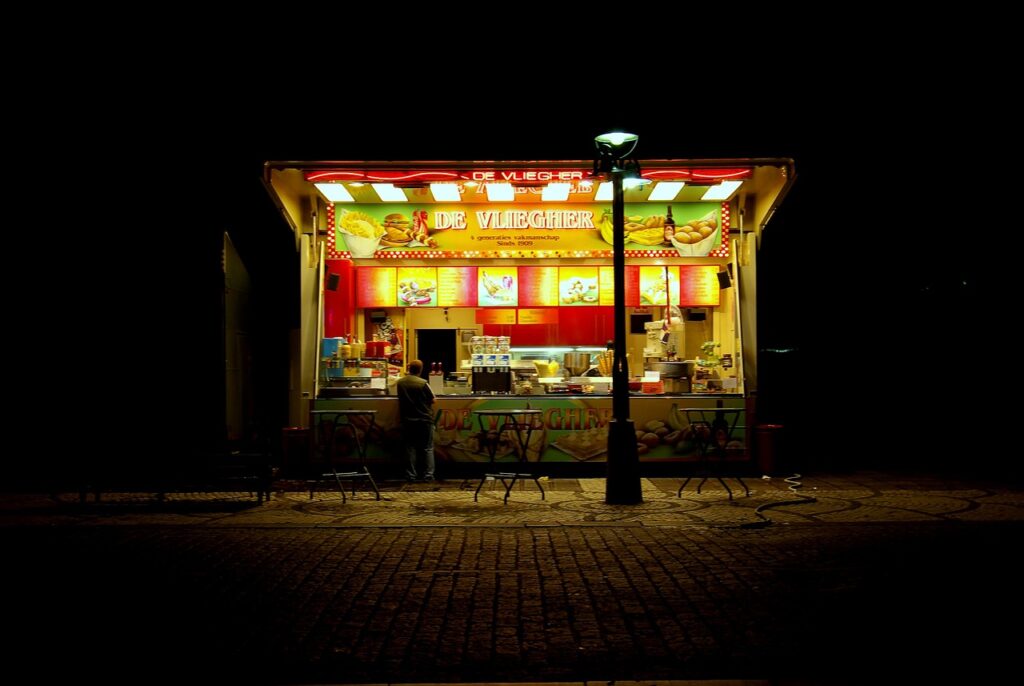How to Make Money Selling Indian Food in the USA (Even If You’re Just Really Hungry)
Have you ever eaten a plate of butter chicken, wiped the sauce off your face with a naan, and thought, “Wow, I could make money with this”? No? Just me?
Whether you’re a culinary wizard from Mumbai, a spice-loving soul from Chennai, or just someone who accidentally made a decent dal once and now thinks they’re the next big thing on MasterChef, this article is for you. Welcome to a glorious, meandering, borderline-pointless journey into how you might, possibly, could (perhaps) make money selling Indian food in the USA.
Spoiler: we’ll talk food trucks, pop-up stalls, and small restaurants. But mostly, we’ll just vibe.
Why Indian Food? Why Now? Why You?

Let’s get philosophical for a second.
There’s something magical about Indian food. The colors, the smells, the spices, the way it somehow stains every Tupperware container forever. Americans have been slowly waking up to Indian food over the years—not just butter chicken and tikka masala, but chole bhature, dosas, Indo-Chinese noodles, even the humble pav bhaji. And when a nation that dips fries in mayo starts craving vindaloo, you know the market is ready.
So why not take that passion (or obsession) and turn it into a side hustle, a career, or at the very least, a tax-deductible excuse to buy a tandoor?
Let’s Start With the Food Truck
Ah, yes, the Indian food truck. It’s like a restaurant on wheels, except way cooler and way harder to park. You’ve probably seen food trucks offering tacos, burgers, and the occasional Korean BBQ fusion experiment gone wrong. But Indian food? That’s untapped gold.
What to Sell From a Food Truck (Besides Dreams)
- Butter chicken wraps – Because Americans love chicken, carbs, and things wrapped in other things.
- Samosa chaat – Crunchy, saucy, spicy, sweet. All the emotions in one paper bowl.
- Paneer tikka tacos – Fusion alert! Call the foodies!
- Mango lassi – Because nothing says “I’m cultured” like sipping a smoothie made from a fruit you can’t spell.

🚚 Sample Menu & Margins – Indian Food Truck
Core Menu Items
| Item | Sell Price | Food Cost | Gross Profit | Notes |
|---|---|---|---|---|
| Butter Chicken Wrap | $10.00 | $2.75 | $7.25 | Fast-selling, hearty |
| Paneer Tikka Wrap | $9.00 | $2.25 | $6.75 | Good vegetarian option |
| Samosa Chaat | $8.00 | $1.75 | $6.25 | Great margins, popular |
| Masala Fries | $5.00 | $1.25 | $3.75 | Add-on item |
| Mango Lassi | $4.00 | $1.00 | $3.00 | High profit beverage |
📊 Estimated Daily Sales (200 customers)
- Average ticket: $12 (combo meals + drink)
- Revenue: $2,400/day
- Food cost (30% avg): $720
- Gross profit: $1,680/day
Pros of a Food Truck:
- Mobility! Go where the crowds are.
- Lower startup cost than a restaurant.
- Great Instagram content opportunities (sunset + food truck + hand model holding dosa = viral).
Cons:
- The weather is your boss.
- You need a permit for everything, including existing.
- Parking tickets are basically a subscription service.
The Pop-Up Stall: Blink and You’ll Miss It (But Hopefully You Won’t)
A pop-up stall is like a food truck but without the engine, horn, or cool paint job. You set up at farmers markets, food festivals, street fairs, and those random corporate events where people pretend they like Indian food to seem worldly.
What to Sell:
- Pav bhaji – Street food that feeds the soul (and has a great ROI).
- Dosa cones – Yes, it’s a dosa shaped like an ice cream cone. You’re welcome.
- Chutney samplers – Great for take-home gifts and impulse buys.
🏕️ Sample Menu & Margins – Pop-Up Stall
Quick-Serve Items
| Item | Sell Price | Food Cost | Gross Profit | Notes |
|---|---|---|---|---|
| Dosa w/ Chutney | $7.00 | $1.50 | $5.50 | High-volume item |
| Pav Bhaji | $8.00 | $2.00 | $6.00 | Nostalgic favorite |
| Indo-Chinese Noodles | $9.00 | $2.50 | $6.50 | Works well at street events |
| Chutney Sampler (take-home) | $5.00 | $1.00 | $4.00 | Adds upsell income |
📊 Event Estimate (100 customers/day)
- Average ticket: $10
- Revenue: $1,000/day
- Food cost: $300
- Gross profit: $700/event
Why Pop-Ups are Fun (and Sometimes Not)
- They let you test your food, brand, and patience—all in one day.
- They’re low-cost and high-impact if done right.
- Setting up at 6 am and tearing down at 10 pm might make you question your life choices.
Still, pop-ups can lead to partnerships, brand awareness, and your first loyal customers who’ll follow you to the ends of the earth (or at least to the next street fair).

Small Restaurant: Big Flavor, Slightly Bigger Bills
If you’ve ever dreamed of owning a small Indian restaurant where you greet customers by name and serve them with love (and ghee), this one’s for you.
But a word of caution: restaurants are hard. Like, really hard. Like “I-hope-you-like-spreadsheets-and-stress” hard. That said, they can also be fulfilling and profitable if you get the basics right.
Restaurant Must-Haves:
- A focused menu: Don’t try to do everything. You’re not your auntie at a wedding buffet.
- Regional focus: South Indian, Gujarati, Bengali, whatever your vibe is—own it.
- Quick service or fast casual format: Think Chipotle, but with curry.
🍽️ Sample Menu & Margins – Small Restaurant
Focused Menu (Fast Casual)
| Item | Sell Price | Food Cost | Gross Profit | Notes |
|---|---|---|---|---|
| Thali Plate (Veg) | $14.00 | $4.50 | $9.50 | All-in-one meal |
| Chicken Biryani | $13.00 | $3.75 | $9.25 | Best-seller |
| Chole Bhature | $10.00 | $2.50 | $7.50 | Vegetarian delight |
| Masala Dosa | $9.00 | $2.00 | $7.00 | Good for brunch |
| Gulab Jamun (2 pcs) | $4.00 | $0.75 | $3.25 | Dessert upsell |
| Masala Chai | $3.00 | $0.50 | $2.50 | Easy profit |
📊 Daily Estimate (60 tables/day avg)
- Avg ticket per table: $25 (includes drinks/dessert)
- Revenue: $1,500/day
- Food cost (30%): $450
- Gross profit: $1,050/day
Bonus Ideas:
- Offer catering. Americans love catered food, especially when it’s not sandwiches.
- Delivery apps are your friend (and enemy). You’ll get orders, but they’ll take 30% of your soul.
- Loyalty programs. Because who doesn’t want a free samosa after 9 biryanis?
What You’ll Need (Besides Good Intentions)
Let’s break it down. Here’s what you’ll actually need to do the thing:
- Marketing Plan – Instagram. Facebook. Maybe TikTok if you’re feeling young.
- Permits & Licenses – Sorry, you can’t just show up and start slinging samosas.
- Commercial Kitchen Access – Unless you want the health department to show up uninvited.
- POS System – Yes, a cash box works, but your customers expect more.
- Branding – Pick a name. Make it spicy. Trademark it if you dare.
Is It Profitable?
Maybe. Depends.
Let’s pretend you sell:
- 100 butter chicken wraps at $10 = $1,000/day
- Cost of ingredients = $300
- Truck rental/fuel = $150
- Permits, labor, other costs = $250
Profit = $300/day (give or take 20 existential crises).
Now imagine doing that 5 days a week = $1,500/week
Monthly = $6,000 profit
Not bad, huh?
But of course, that’s an ideal scenario. Real life will throw in rain, slow days, and “I forgot the chutney” days. But with consistency, community, and a killer menu, it’s doable.
For You
If you’ve read this far, you’re either really committed or just killing time at work. Either way, here’s what we’ll leave you with:
- Start small. Test everything. Don’t be afraid to be weird (weird sells).
- Use your food to tell a story. Where it came from, what it means, and why it matters.
- People will forget your Instagram captions, but they won’t forget how your dal tasted.
- And yes, you can make money from Indian food. Especially if you season it with ambition, consistency, and maybe a little garam masala.
Grow with Moneyculator..
